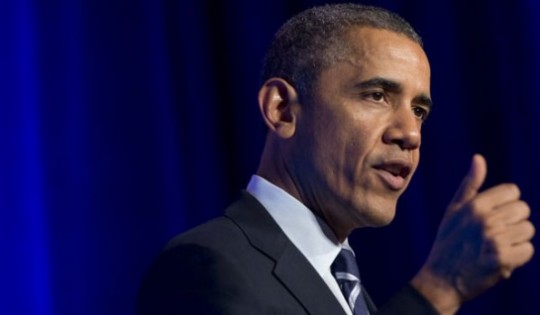US President Barack Obama has indulged in another of the politicians’ crusades against foreign tax havens, which always conveniently ignore the smelly stuff on the politicians’ own doorsteps.
Robin Mitchinson reports in his blog whydonttheylistentous that Obama’s latest tactic is to extend the jurisdiction of the US tax office, the IRS, to cover the whole world. His weapon is the Foreign Account Tax Compliance Act, which requires all foreign financial institutions to supply full details of accounts held abroad by American taxpayers.
But, Robin goes on to say, there are a few problems…
The first is that foreign banks have not taken too kindly to being tax gatherers for the US Government at their own expense, which is estimated at ten times the tax gain. Neither do they appreciate the regulatory costs and penalties that will be imposed on them for any backsliding.
The US has promised reciprocity to countries signing up to the deal, which should have lawyers salivating at the prospects of actions against the Federal Government on constitutional grounds.
A number of countries have signed-up. The snag is that only two of them are ‘tax havens’ — the remainder are high-tax regimes which are hardly likely to be the destinations of American funny-money. And in any case, there are plenty of potholes in the form of privacy laws and data protection.
The big tax havens have ignored Obama altogether.
Americans abroad are none too impressed either; there has been a surge in renunciations of US citizenship.
Amazingly, no cost/benefit analysis was undertaken before the Act was passed; it is estimated that the collection costs will outweigh revenue collected, and that capital flight could be substantial. But nobody really knows.
The UK has also ventured down the same bumpy road.
A couple of years ago it negotiated a ‘transparency’ deal with Switzerland.
In return for disclosing the 20 per cent or so of undeclared accounts that were identifiably British, the Swiss were not required to reveal anything more. But most offshore accounts are blind or discretionary trusts, or some other vehicle that does not identify the owner. Offshore banks specialize in these, and there are entire law firms that do nothing else.
And the levy only applied to accounts still held as at May 2013, so anybody idiotic enough to keep his offshore account in his own name had 18 months to shift his wodge to another ‘tax haven’. The Swiss were not required to reveal how much money was shifted, or by whom.
Not that any of this will bother the Swiss or make any difference. The really big amounts of tax-dodging money come from Africa, Eastern Europe and Asia.
But the UK Government is in another bind. Over the years most public buildings have been financed through PFIs – public/private finance initiatives — which are really lease-back arrangements where the money is provided by the private sector and the Government is effectively a tenant.
The £450 million Ministry of Defence offices are owned by a PFI outfit that is incorporated in Jersey and has a Dublin tax residency (Irish corporation tax is much lower than the UK’s).
Even more embarrassing, the Home Office is owned by a consortium of financiers through a Luxembourg holding company and a parent registered in Guernsey. A former UK Trade Minister was chairman of an offshore bank which has been investigated for laundering money from Pakistan, Qatar and Zimbabwe. Oh… and the minister in charge of beating up tax havens in the last government had £250,000 stashed in an offshore blind trust.
If Obama is looking for a place to start shutting down tax havens, how about those in the US itself, such as the state of Delaware? Or Nevada, where there is a ‘tax-efficient vehicle’ for every six members of the population?
And although the US insists that the International Monetary Fund investigates transparency into other countries’ offshore banking practices, it will not allow the IMF into its own banks, notwithstanding that America is the world’s largest tax shelter.
What Investors Should Do Now
Jay Pelosky of JZZ Advisory offers this “road map to success” in current conditions…
- “First, be prepared for more data-driven volatility.” In other words, monetary policies will probably be destabilized by surprise shifts in key economic fundamentals such as job creation, housing, inflation.
A surprise development could be that Germany switches to favouring quantitative easing policies by the European Central Bank as stress tests reveal the dangerous levels of toxic debt in the balance sheets of its regional banks.
“Europe has minimal capacity to absorb deflation, given a combined bank balance sheet three times the size of GDP… Deflation lurks, as private credit creation declines while inflation readings disappoint.”
- Look to leadership in the world’s equity markets to shift to developed economies other than the US.
- Upheaval in emerging markets will support demand for physical gold and cut demand for oil – “invest accordingly.”
- Yields on ten-year Treasury bonds hit highs in early January. “Invest in longdated non-government debt, much of which remains priced near summer lows.”
Respected analyst (and friend) David Fuller says longer-term investment prospects are “very promising” thanks to accelerating technological innovation, the potential for cheaper energy, the triumph of capitalism in its various forms, and the increasing global middle class as a result of these developments.
However, we should expect some increasingly choppy conditions in investment markets over the short- to medium-term because:
- Institutional investors are wary because many American shares are trading at higher valuations following last year’s outstanding gains;
- There is a huge amount of liquidity sloshing around;
- Most of the business volume comes from high-frequency trading by computer systems;
- Tapering of Quantitative Easing is under way.
This “creates a more dangerous environment for leverage traders,” he says, but “volatility can assist experienced, calm and unleveraged investors” to profit from it “with a buy-low-sell-high strategy in quality shares.”
CopyRight – OnTarget 2014 by Martin Spring





















